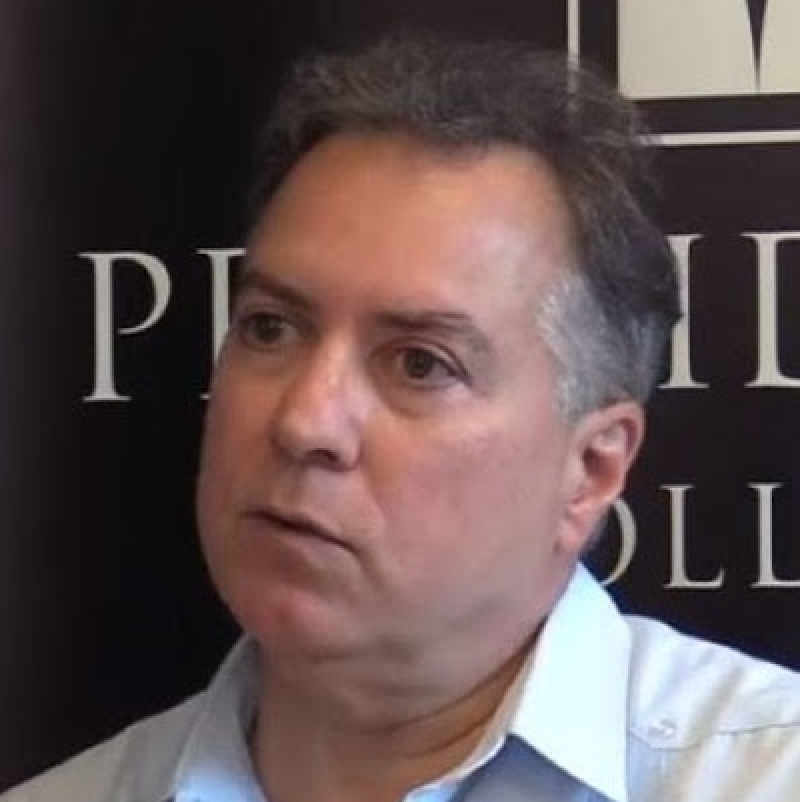By Cristina Beltrán and Tony Affigne | Leer en español
Researchers and teachers who specialize in Latino politics are increasingly alarmed by the flood of misinformation targeting Hispanic voters — a tsunami of lies that the U.S. government and social media giants are failing to confront.
For example, Spanish-language Twitter and Telegram have in the past four weeks seen new claims that President Biden suffers from “dementia,” offering no medical evidence, but pointing to awkward use of teleprompters as proof that Biden suffers a cognitive disorder. The potential political impact of such misinformation is obvious.
It’s hardly news that social media has struggled to quell lies and conspiracy theories: Congressional hearings, documentary films, and countless articles have highlighted the damage done by online communities sharing and spreading dangerous misinformation — and the often-halfhearted efforts by Facebook, YouTube, and Twitter to fact-check and/or silence false claims.
But Latino voters — most notably in Florida and Texas — have been particularly targeted, largely below the radar. Latinos are a much younger population than their white, Black, and Asian peers, and, unsurprisingly, they use mobile apps, social media, and messaging platforms at higher rates. And what users are seeing, on everything from COVID-19 to elections to the January 6 insurrection, is often horrifically false.
During the 2020 election campaign, pro-Trump activists targeted communities of Latino voters with claims ranging from the hyperbolic (Joe Biden is a communist) to the murderous (Biden is a blood-drinking pedophile). Social media campaigns attacked the Black Lives Matter movement with racist rhetoric and warned of a Democratic plot to have a caravan of Cuban immigrants breach the U.S. Southern border and disrupt the election process. Widely circulated memes claimed that Biden and running mate Kamala Harris endorsed infanticide.
Why have platforms and regulators failed to push back against such destructive lies with the kind of activist intervention mustered to fight COVID-19, QAnon, and election misinformation? Language is a primary reason: Facebook, YouTube, Twitter, and other platforms, already under the gun for slipshod monitoring, have focused on combating English-language disinformation, devoting few if any resources to fact-checking other material even as the sites spread more globally. In 2020, several platforms banned the #plandemic hashtag, associated with a viral video espousing false COVID-19 conspiracies. But users continued spreading misinformation on the platforms using #plandemia — the Spanish version — for many more months.

As college professors, we will continue to publish and educate our students and communities. But institutions need to do more. At this perilous moment for democracy — with voter suppression and nullification efforts weakening local and national political systems — the country cannot afford to abandon millions of voters to this ongoing catastrophe.
- Congressional committees need to hold hearings as soon as possible to highlight and investigate the scourge of misinformation affecting Latino communities.
- Regulators, beginning with the Federal Trade Commission, need to play a stronger role, doing more to examine disparities in how platforms monitor disinformation from Spanish and other non-English sources.
- Meta, Twitter, YouTube, and others need to redouble their efforts and devote sufficient resources to exercise oversight over content regardless of language, which likely means dramatically increasing the number of culturally aware staff to flag and remove Spanish-language misinformation.
Assaults on the rights of Latinos don’t just happen when they are migrants at the border, or as poorly paid but essential workers that this country both exploits and depends on. The partisan manipulation of Latinos, when they are lied to through their phones, tablets, and computers, is a particularly toxic and insidious form of political violence, perpetrated on the hearts and minds of our people.
When citizens make decisions about their lives, their interests, and their government, based not on facts and reality but on conspiracy theories and gross falsehoods, it is an assault on our rights and our freedom as Americans. Voters — all voters — deserve better.
Cristina Beltrán is associate professor of social and cultural analysis at NYU. Tony Affigne is professor of political science, Black studies, and Latino/a studies at Providence College.





